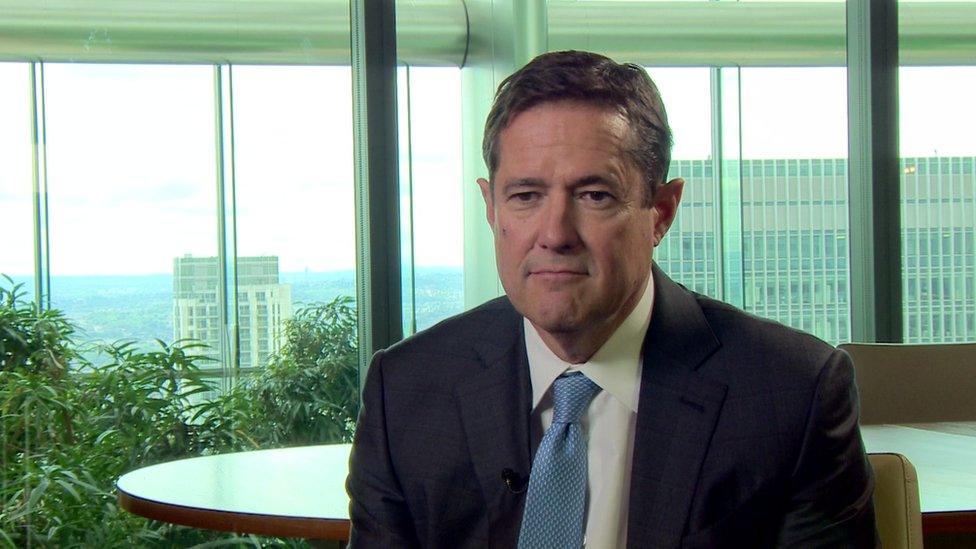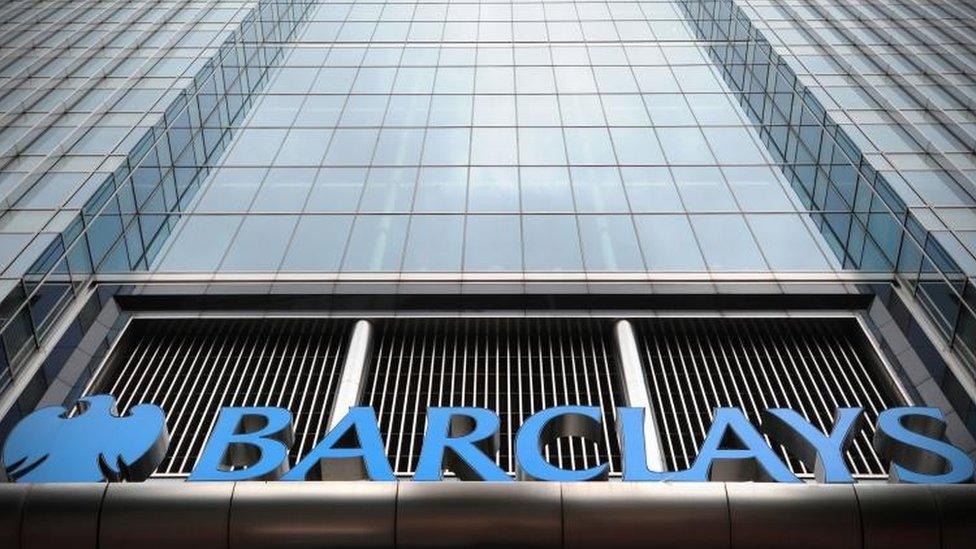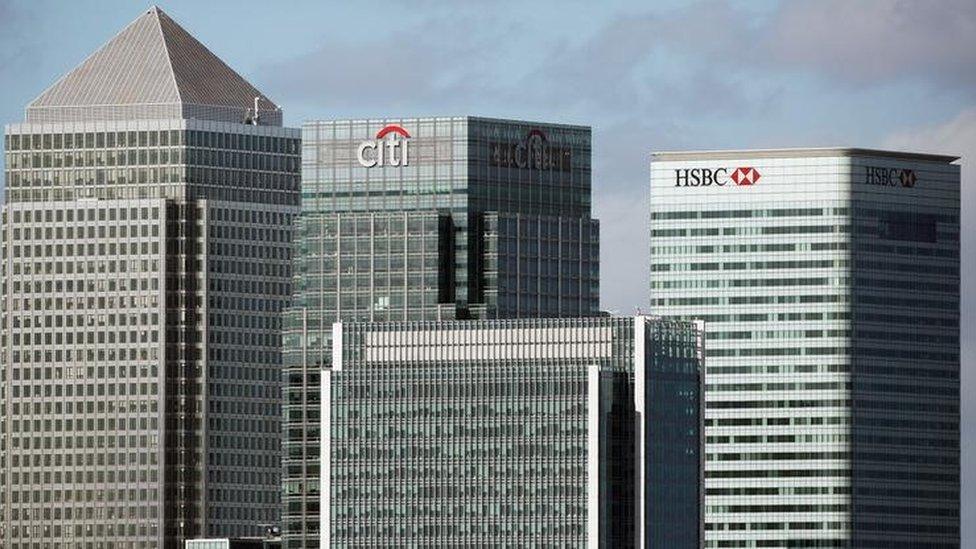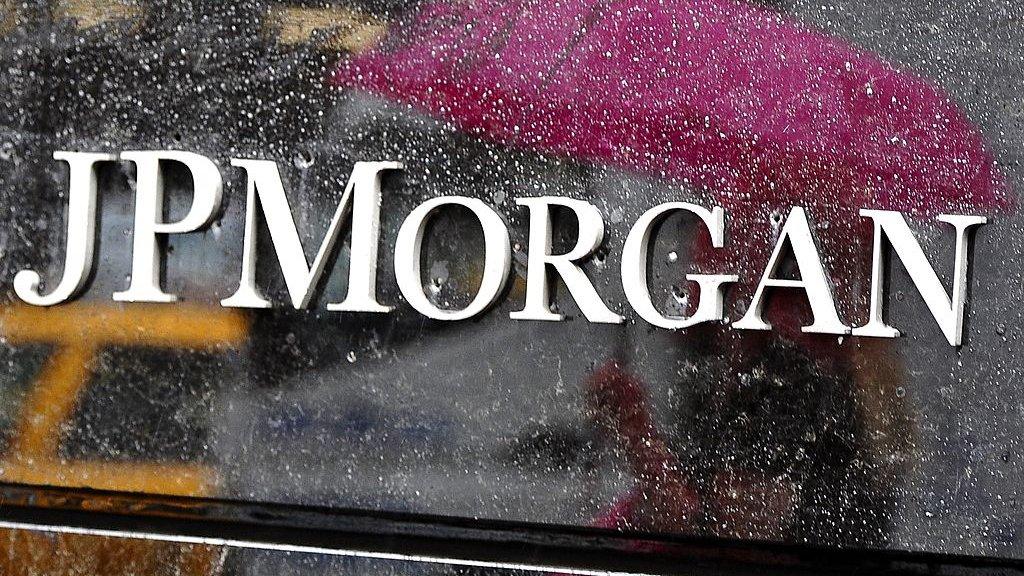Barclays 'has no plans to move jobs' after Brexit vote
- Published

Banking giant Barclays has no plans to move jobs out of the UK following the vote to leave the European Union, chief executive Jes Staley has said.
Barclays is "staying anchored in Great Britain" he told BBC business editor Simon Jack.
Some banks have warned that the Brexit vote may affect jobs.
But Mr Staley said: "Right now we are not making any plans to pick up and move people from one location to another."
That said, Barclays "wants to be involved in the capital markets globally" and wants to "stay connected to the European capital markets".
The bank will aim to take on new employees if access to Europe is restricted by Brexit, he said.
"You might have to increase your presence in another location - that doesn't necessarily mean you have to decrease [at] your location here," Mr Staley said.


Analysis: Simon Jack, BBC business editor
"We saw the one of the biggest one day declines in global wealth in history and the financial system worked fine".
That was Barclays chief executive Jes Staley's stoic reflection on Friday's $2.5 trillion market reaction to the UK's vote to leave the EU, which he said caught him and the markets by surprise.
Barclay's own shares lost nearly a third of their value last Friday. A rout he put down to fears that a political upheaval could lead to an economic downturn.
Now the market storm has subsided, many shares, excluding the bank's, have regained lost ground, and the focus moves on to the real economy and the impact on investment and jobs.
Several of Barclays neighbours in Canary Wharf have said jobs may move to Europe.
HSBC ruled out moving its global HQ from the UK but has said 1,000 jobs may go to Paris.
American bank JP Morgan has said up to 4,000 of its 16,000 UK workforce may be relocated.
Mr Staley was keen to emphasise that Barclays was a British bank that will remain anchored in Britain and although he conceded Barclays might set up a subsidiary in Europe, it wouldn't necessarily be at the expense of UK jobs.
As an American in the UK he drew parallels between the Brexit vote and the political landscape in his home country.
"There is definitely something going on here and in the US… the establishment needs to hear the narrative that globalisation and free trade is not working for the man on the street".

Bank shares
Major banks such as Barclays, JP Morgan and Goldman Sachs employ thousands of people in the UK.
One of the reasons these banks find the UK so attractive is so-called "passporting" - their being able to employ people in one EU country, and offer services in another.
But there is a fear that banks in the UK could lose this right following the vote to leave the EU.
After the vote to leave, shares in banks including Barclays and RBS plummeted by around 30%.
Barclays shares are still trading around 20% down.
Mr Staley said: "Bank stocks took a real hit."
He said one of underlying factors in the drop were "a sense that the political crisis will lead to an economic crisis".
"I'm not sure that's true, but I think underlying there's this view that there may be a UK recession, and as a British bank we would be vulnerable to that."
- Published26 June 2016

- Published3 June 2016
